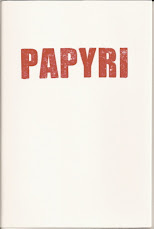
Juana Inés de Asbaje y Ramírez de Santillana
[Sor Juana Inés de la Cruz]
(c. 1651-1695)
from Respuesta a Sor Filotea de la Cruz
Una vez lo consiguieron una prelada muy santa y muy cándida que creyó que el estudio era cosa de Inquisición y me mandó que no estudiase. Yo la obedecí (unos tres meses que duró el poder ella mandar) en cuanto a no tomar libro, que en cuanto a no estudiar absolutamente, como no cae debajo de mi potestad, no lo pude hacer, porque aunque no estudiaba en los libros, estudiaba en todas las cosas que Dios crió, sirviéndome ellas de letras, y de libro toda esta máquina universal. Nada veía sin refleja; nada oía sin consideración, aun en las cosas más menudas y materiales; porque como no hay criatura, por baja que sea, en que no se conozca el me fecit Deus, no hay alguna que no pasme el entendimiento, si se considera como se debe. Así yo, vuelvo a decir, las miraba y admiraba todas; de tal manera que de las mismas personas con quienes hablaba, y de lo que me decían, me estaban resaltando mil consideraciones: ¿De dónde emanaría aquella variedad de genios e ingenios, siendo todos de una especie? ¿Cuáles serían los temperamentos y ocultas cualidades que lo ocasionaban? Si veía una figura, estaba combinando la proporción de sus líneas y mediándola con el entendimiento y reduciéndola a otras diferentes. Paseábame algunas veces en el testero de un dormitorio nuestro (que es una pieza muy capaz) y estaba observando que siendo las líneas de sus dos lados paralelas y su techo a nivel, la vista fingía que sus líneas se inclinaban una a otra y que su techo estaba más bajo en lo distante que en lo próximo: de donde infería que las líneas visuales corren rectas, pero no paralelas, sino que van a formar una figura piramidal. Y discurría si sería ésta la razón que obligó a los antiguos a dudar si el mundo era esférico o no. Porque, aunque lo parece, podía ser engaño de la vista, demostrando concavidades donde pudiera no haberlas.
Once they obtained for me a very holy and very candid priest who believed that study was a thing reserved for the Inquisition and ordered to me not to study. I obeyed him (for the approximately three months that his power to be in charge lasted ) as far as not picking up a book; however, as for not studying absolutely, since it does not fall down under my power, I could not do it, because although not studying in books, by studying all the things that God has created, making use of lettering, and seeing as a book all this universal machinery. I could see nothing without reflecting on it; hear nothing without consideration, even the most small and material things; because since there is no creature, however lowly, which is not aware that God made it, so there is nothing which does not amaze the understanding, if he considers to whom it owes its being. In this way I, I say again, looked at and admired all of them; in such a way that from the same persons with whom I was speaking, and from what they were saying to me, a thousand considerations were being highlighted: Wherefrom could there come such a variety of spirits and wits, since we are all of one species? What are the temperaments and secret qualities which cause it? If I saw a figure, I found myself combining the proportion of its lines according to my understanding and transforming it into various others. I walked sometimes through the alcove of a bedroom of ours (which is a very large room) and found myself observing that although the parallel lines of its two sides and its roof are all on one level, sight feigns that its lines were inclining each to the other one and that its roof was lower in the distance than in the foreground: wherefrom I inferred that the lines of vision run straight, but not parallel to each other, since they end up forming a pyramidal figure. And I wondered if this was the reason that caused the ancient ones to doubt if the world was spherical or not. Because, although it seems to be so, it could be a trick of the sight, displaying concavities where they could not be.






.jpg)
No comments:
Post a Comment